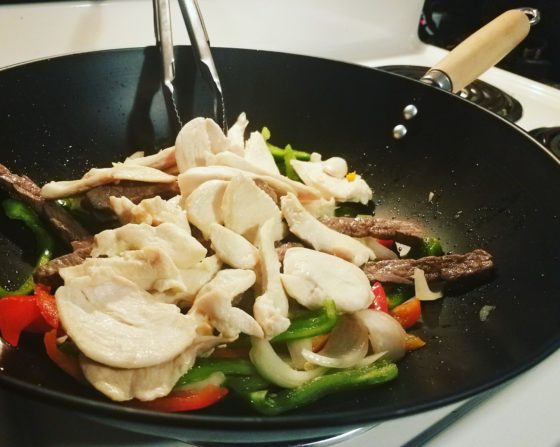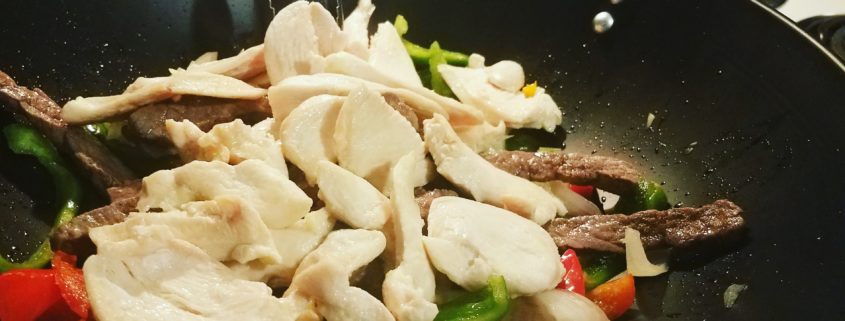Keto Before and After Birth: Is This Low-Carb Diet Dangerous?

Recently, the ketogenic diet or keto has gained traction in the health-food world, with some boasting its fast weight-loss benefits and others taking a more skeptical approach. What is keto, and could it be safe for a new or expecting mom?
In this post, we’ll weigh the pros and cons of the keto diet while discussing the healthy eating plan that may be best for you as a pregnant or breastfeeding mother.
Contents
What is keto?
Dating back to the 1920s as an experimental treatment for epilepsy and diabetes, the ketogenic diet has experienced a resurgence in the last decade. Carbohydrates are the sworn enemy of a ketogenic diet, with dieters limited to a daily maximum of 50 grams. This amounts to a one-cup serving of rice or a small bagel for people who don’t follow the diet, though carbs lurk in a lot of other good-for-you foods like veggies and fruits, so you generally won’t see keto fans partaking in any traditional carbs like breads or pastas. They also avoid most fruit, as sugar essentially equals carbs.
On this low-carb, high-fat plan when followed properly without “cheating,” the body will go into a state of ketosis, which may promote rapid weight loss and increase energy after a short period of feeling crummy commonly referred to as “keto flu.” Molecules called ketones will build up in the bloodstream, blood sugar levels will drop, and the body will begin breaking down fat instead of carbs to give the body the energy it needs.
Although the keto diet produces excellent weight-loss results short-term, long-term it’s very hard to maintain because of its extreme restrictive nature. However, one study on the long-term health of obese patients who stuck to keto found no harmful side effects of the diet, plus a decrease in weight and body mass index (BMI). These patients also saw lower triglyceride levels, lower LDL (the “bad”) cholesterol and an increase of HDL (the “good”) cholesterol, plus decreased blood glucose.
But is the keto diet safe for pregnant or breastfeeding mothers?
See also: Can Obesity Before Pregnancy Cause Cerebral Palsy?
Keto Diet Safety Before and After Birth
While we’re pregnant, we may be self-conscious about gaining too much weight — both for superficial reasons and for the health of our baby and ensuring a safe delivery. There are suggested weight gains for pregnant women of various BMIs, but typically, taking up any new diet while carrying a child or trying to lose weight is not recommended. For some obese or overweight women, it may be recommended by their doctor that they watch their food intake to gain minimal weight during pregnancy. In any case, you should always consult with your doctor before starting any sort of new diet or exercise regimen while pregnant or trying to get pregnant.
That said, for women who are already following a ketogenic diet before they become pregnant, should they keep to the low-carb lifestyle? After all, research indicates that low-carb diets like keto may benefit women with polycystic ovary syndrome (PCOS). But according to research conducted for BMC Pregnancy Childbirth on pregnant mice, no studies to date have thoroughly investigated how good or bad a keto diet may be on a developing fetus. For the mice embryos in this study, however:
“A ketogenic diet during gestation results in alterations in embryonic organ growth. Such alterations may be associated with organ dysfunction and potentially behavioral changes in postnatal life.”
A lack of human studies on keto and pregnancy, and therefore conclusive evidence on the diet’s effects, tells us that moms should proceed with caution when considering a ketogenic diet. But what about after birth? We’re wanting to get our pre-baby body back, and quick. Keto has super-quick results, so why not?
Adopting a balanced approach to both staying fit during pregnancy and losing baby weight after childbirth may be most beneficial, some medical experts say. In other words, keto may be an impressive sprint, but a balanced diet including healthy carbohydrates is an endurance marathon. Both approaches may help you lose weight, but the balanced approach can help you keep it off even if the process takes longer.
Dr. Marcelo Campos, a contributor to Harvard Medical School’s health publications, adds:
“It is also important to remember that “yo-yo diets” that lead to rapid weight-loss fluctuation are associated with increased mortality. Instead of engaging in the next popular diet that would last only a few weeks to months (for most people that includes a ketogenic diet), try to embrace change that is sustainable over the long term.”
From a medical perspective, then, keto may be a type of yo-yo diet due to its speedy results and tight restrictions on carbohydrates. So, let’s take a deeper dive into carbs and why they’re such a big deal.
Why do you need carbohydrates during pregnancy?
Carbohydrates fuel the body, and ditching them from your diet can leave you feeling sluggish or even on the verge of passing out due to low blood sugar. This is not to say that a low-carb diet can never be healthy; in fact, there have been studies that show that low-carb eating may reduce inflammation in the body and even improve cardiovascular health. Plus, an excess of carbs, especially starchy ones like white pasta, can lead to a crash after an initial infusion of energy. So, we don’t want to overload on carbs but we don’t want to banish them from our diets either, especially when pregnant or lactating.
Furthermore, whole-grain carbohydrates and fruits are high in fiber, which makes you feel full. But again, an excess of carbohydrates, particularly the starchy ones, can spike insulin levels in the blood and lead to that dreaded crash along with leptin resistance. Similar to insulin resistance, which is a precursor to diabetes, leptin controls appetite, and resistance to the hormone may cause weight gain.
That’s why it’s so important to differentiate between “good” and “bad” carbohydrates.
Good Carbs vs Bad Carbs
How do you know which carbs are good and which are bad? Your motherly intuition may come in handy here! In general, the health-boosting carbs are the ones your common sense would tell you are good for you: whole grains, fruits, vegetables, and beans. The depleting carbs are also easy to pinpoint and come in a signature shade: white sugar, white bread, white rice, etc.
Healthy carbohydrates are complex carbohydrates, which take longer to break down in your digestive system, thus helping you feel full for longer. Meanwhile, the unhealthy ones are simple carbohydrates, which dissolve quickly in your gut and do little or nothing to satiate hunger. Knowing the difference is key to formulating a healthful eating plan during pregnancy and after giving birth.
For example, a light meal of complex carbohydrates, such as a nourishing chickpea and vegetable soup, can make you feel like a champion and carry you through the day for hours without hunger pangs. Choose your carbs wisely!
Daily Carbohydrate Recommendations When Pregnant or Breastfeeding
In contrast to the upper limit of 50 grams of carbohydrates on a ketogenic diet, the U.S. Department of Agriculture recommends a daily minimum of 225 grams of carbohydrates. In fact, carbohydrates should comprise between 45% and 65% of your daily calorie intake, even if you’re not breastfeeding.
If you are breastfeeding, then your daily nutritional requirements will be 300 to 500 calories higher than usual for the first few months (translating as a total daily consumption of up to 2,200 calories). These extra calories should include at least 210 grams of carbohydrates as a diet low in carbohydrates while breastfeeding can lead to decreased milk supply and even dehydration. Of course, the quality of your carb intake is as important as the quantity, meaning that you should choose fresh whole-grain bread over a greasy pizza made with white dough.
Good carbohydrates also include nutrient-dense fruits like bananas (high in potassium, which the keto diet may lack) and avocados (rich with the folate your growing baby needs). Sodium and magnesium may also be in short supply for the breastfed babies of mothers on a keto diet.
Prenatal vitamins, while a good supplement, should generally not be the main source of folate and other key nutrients for most women. There are exceptions, though, and nutrition is highly individual. Some women successfully supplement with magnesium, for example, to make up for possible nutritional deficiencies.
Check with your doctor to confirm what’s right for you personally.
Other Diets You May Want to Avoid While Pregnant or Breastfeeding
Keto is not the only low-carb diet to stir up a sensation; the arguably high-protein Atkins Diet and the initial low-carb phase of the South Beach Diet may also be unsafe for pregnant or breastfeeding women. Likewise, it’s not all about being in the “carbs are bad” or “fat is bad” camps — women need to be vigilant about getting the proper nutrients on a vegan diet, too.
Bottom line: Talk to your obstetrician or nutritionist to map out an eating plan that is both safe and enjoyable for you and baby. While proteins like meat may be part of a balanced diet — so long as they’re cooked thoroughly while avoiding some types of fish that contain high levels of mercury — complex carbohydrates can be as well for pregnant or breastfeeding moms.
Have you tried the keto diet while pregnant or breastfeeding, or were you on keto before you got pregnant? Share with us your experiences in the comments!








Leave a Reply
Want to join the discussion?Feel free to contribute!